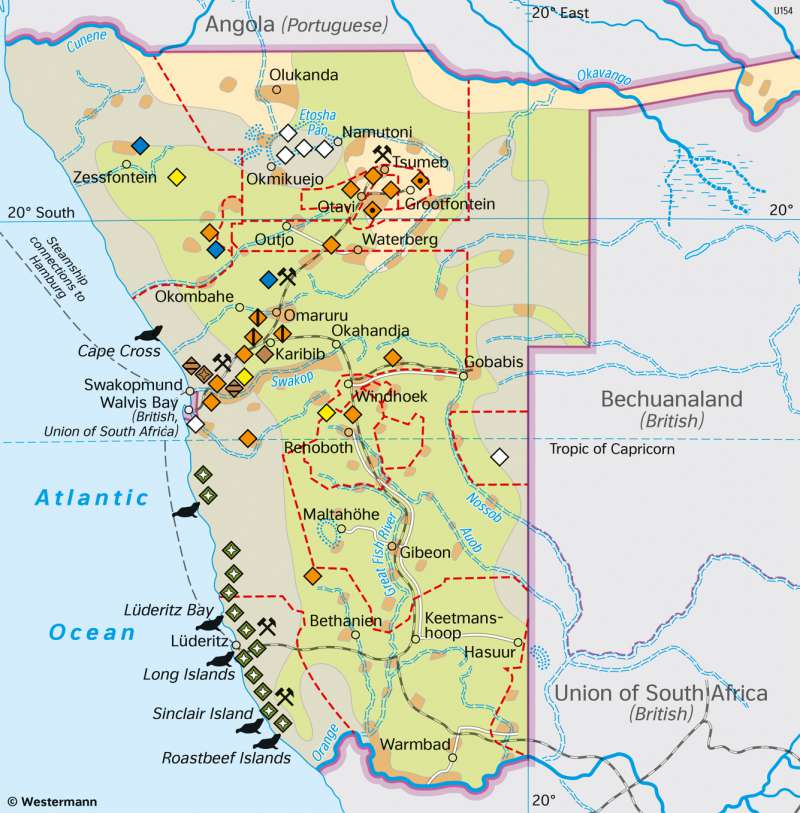German South West Africa - Colony around 1915
History and countries
978-3-14-100890-6 | Page 144 | Ill. 4

Overview
Before the arrival of the Europeans, Namibia was home to different ethnic groups such as the Nama, San, Damara, Herero, and Bantu peoples.
The German colony South West Africa
In 1883, merchant Adolf Lüderitz from Bremen acquired the coastal strip around "Lüderitz Bay". In 1884, Imperial Chancellor Otto von Bismarck declared the country a "protectorate" of German Southwest Africa. In 1885, a German Colonial Society for Southwest Africa was founded to attract settlers to the country: with success. In 1913, 14,830 Germans lived in Namibia, more than in all other German protectorates combined. Among them were traders as well as farmers who occupied fields and water points and pushed the natives into the infertile areas. The land seizure was accompanied by severe human rights violations, and conflicts between the natives and the settlers were the result. In 1892, the Schutztruppen occupied the entire area between the Kuene and Orange Rivers, except for Whale Bay south of Swakopmund, which belonged to the Cape Colony.
On 12 January 1904, the Herero rose up and killed 123 German traders, settlers and soldiers; women, children and missionaries were spared. The German colonial power reacted with a campaign of destruction. With an army of 10,000 men, Lieutenant General Lothar von Trotta encircled the Herero on the Waterberg in August 1904 and ordered that no prisoners be taken. Many were shot, others driven into the Kalahari, where they died of thirst. Of 80,000 Herero, at least 60,000 died, of the 20,000 allied Nama, more than half were killed. In 1915, the German Schutztruppen were disempowered by South African troops.
Economically, Namibia, like all German colonies, fell far short of expectations. Although copper was mined and some diamonds were found, which briefly triggered a diamond rush, none of this was able to give the German economy the stimulus it had hoped for. The small surpluses were swallowed up by administrative, military, and infrastructure spending.




